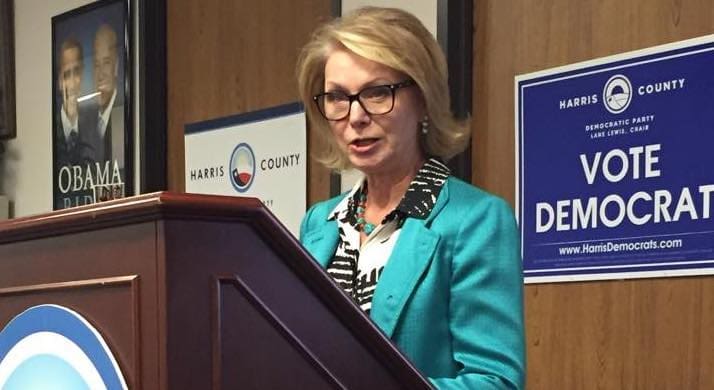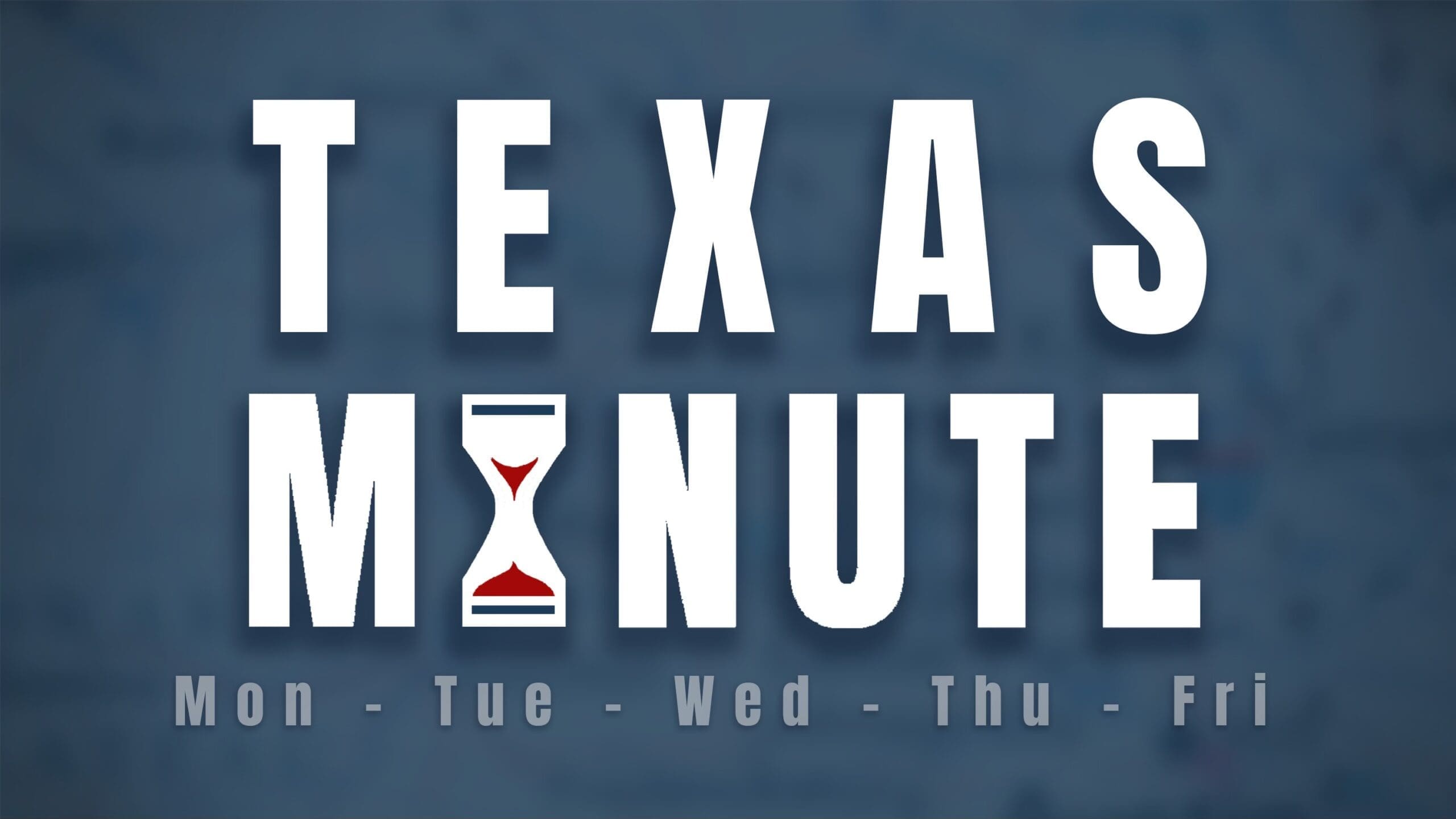A Democrat in charge of elections in Texas’ most populous county says it’s time to “move on” from Super Tuesday voting problems caused by her mistakes.
“My office and I do take responsibility for the problems that we had,” Harris County Clerk Diane Trautman told the commissioners court last week. “But the main point today is to improve and move on to November.”
Trautman is in charge of conducting elections for over 2.2 million registered voters in the Houston area. She’s drawn fire for a series of mistakes in the March 3 Democrat and Republican primary elections, which her office handled under contracts with each of the parties.
Trautman’s troubles started during early voting when voters and poll workers discovered her office had loaded the wrong voter data into the county’s electronic poll books.
Local Republican officials who were monitoring election activities on behalf of the party reported the data problems to Trautman’s director of elections, Michael Winn.
When news reports began surfacing about the error, Trautman’s office directed poll workers not to talk to the media.
Her mistakes continued through election night when voters at some Harris County polling places waited hours in long lines caused by her office misallocating voting machines.
Trautman initially blamed Republicans for the long lines, but she later admitted she and Winn were responsible for the election-night fiasco that captured national media attention.
“[W]e take full responsibility for the long lines and wait times,” Trautman said in an official statement three days after the primary. “We did the best with what we had and what we believed was fair.”
Trautman brushed aside concerns about vote-count discrepancies raised by Alan Vera, who heads the Harris County Republican Party’s Ballot Security Committee.
Vera told commissioners in-person early voting data posted on the clerk’s website shows 439 more ballots than voters.
“Everything is unofficial until reconciliation takes place and the official canvass,” Trautman said.
“That’s nonsense,” Vera told Texas Scorecard. “This data was from in-person early voting. The vote data is from the actual JBCs (Judge’s Booth Controllers) returned from every early voting location. The voter counts are from four days after the early voting polls closed. This is final data and indefensible.”
Countywide voting contributed to Trautman’s troubles. Trautman pushed for Harris to begin using countywide vote centers last year, allowing voters to cast ballots at any polling place in the county. HCRP Chair Paul Simpson and others cautioned the county wasn’t prepared to roll out the program.
Trautman, however, assured a panel of lawmakers that with countywide vote centers, “there will never be a need to wait in line.”
Super Tuesday voters proved Trautman wrong.
“It can be very difficult to project turnout for voting centers since people can vote at any location,” she admitted to county commissioners last week, adding she did not know ahead of time how vote centers work during primaries.
In order to use countywide vote centers in primary elections, both parties must agree to use the same polling places—regardless of differences in anticipated voter turnout. The parties themselves mutually select the locations. But as part of their contracts with the elections office, each party can request how many voting machines it wants at each vote center.
Trautman told commissioners she received voting equipment requests from the Republican Party but not from the Democrat Party, “so we felt it was best to split the equipment equally” at each of the 401 shared vote centers.
“We acknowledge that this was a mistake,” she said.
“In November, it will be a different ballgame,” Trautman added. “My office will be in charge of selecting the polling locations.”
She said there will be 750 Election Day vote centers for the presidential election. Polling locations will be based on recent and historical voting data as well as input from the community, and her office will be “over-allocating equipment” for locations that experienced high turnout in the primaries.
She also said she will try to find a fix for the online wait time feature, which voters complained didn’t work well and left them stranded in unexpected lines.
Other problems in the primaries were out of her control, Trautman told commissioners.
Some of the equipment malfunctioned due to age, and she wants to buy more machines as backups. Trautman is eventually planning to buy all new equipment to replace the county’s 10-year-old voting machines, at an estimated cost to taxpayers of $75 million.
Trautman also said both parties were “scrambling” to fill poll worker positions right up to the night before the election, so some were not familiar with the voting equipment. Each party is responsible for recruiting election judges and clerks to process their party’s primary voters.
County Commissioner and former State Sen. Rodney Ellis (D-Houston) was skeptical.
“We were in such a rush to try this shiny new thing,” Ellis said, talking about countywide vote centers, “which conceptually sounds wonderful but makes me wonder if it’s worth it.”
“It was a very sad night for many voters,” Trautman said, but added voters at TSU (where election-night wait times were longest) “were able to go where they wanted to go, even though that meant waiting in that line. Without countywide, those votes would’ve never happened.”
“You’re assuming that,” Ellis said.
Ellis floated the idea of using taxpayer money to hire leftist organizations like The Brennan Center as paid consultants to help Trautman and Winn do the jobs they were elected and hired to do.
Trautman was elected in November 2018 and hired Winn soon after taking office, following a purge of her Republican predecessor’s election-office staff. Winn formerly managed elections for Travis County’s Democrat county clerk.
Whether or not voters decide to keep Trautman as their chief election official when the Democrat is up for re-election in 2022, Harris County will need to make some big changes in the coming months or else face even bigger problems in this November’s high-turnout presidential election.





